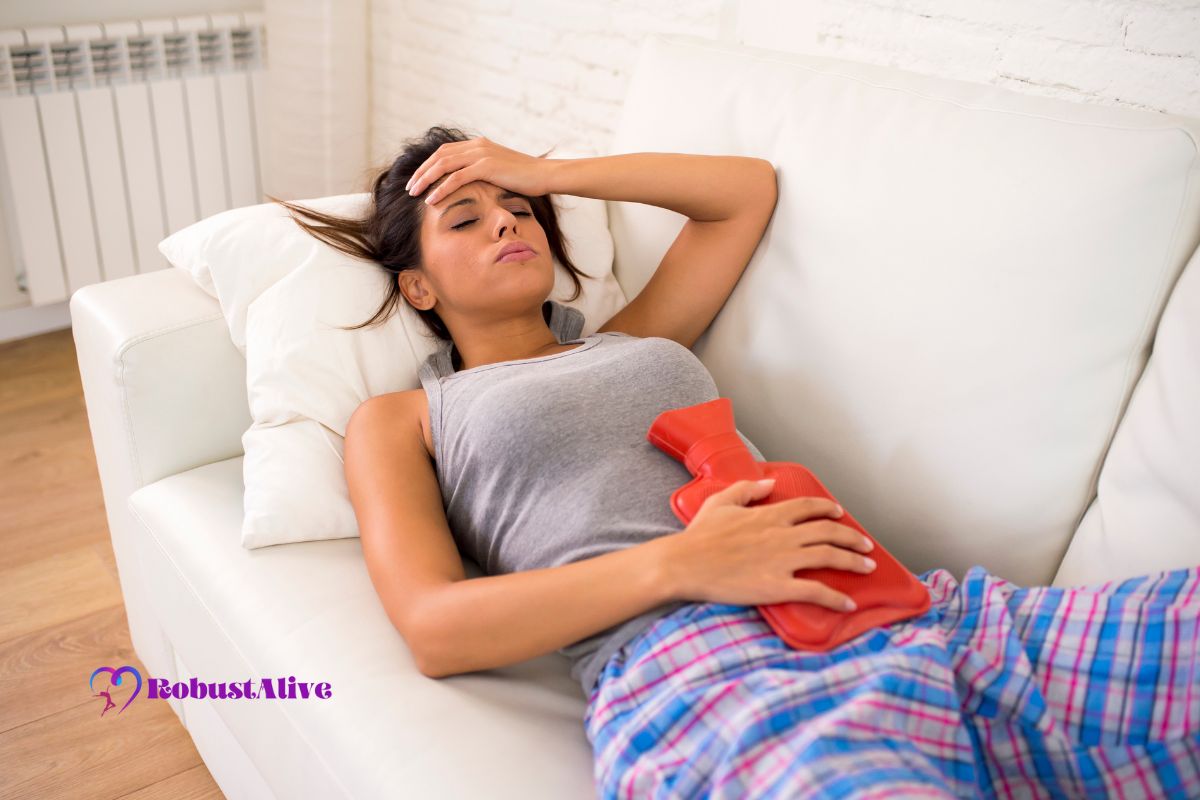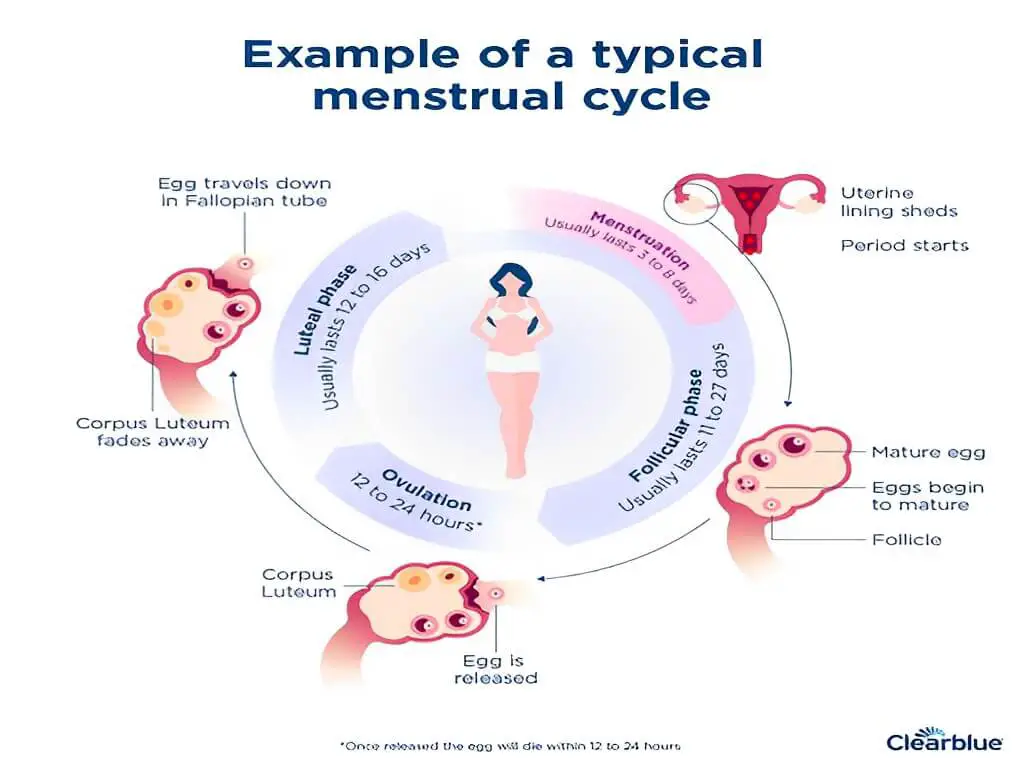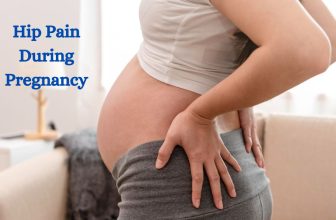Does Late Ovulation Mean Late Period? Find the Secrets

When tracking menstrual cycles and fertility, women often rely on the regularity of their periods as an indicator of reproductive health. One factor that can influence the timing of a period is the moment of ovulation. Generally, ovulation occurs midway through the menstrual cycle. However, sometimes it can be delayed for various reasons.
So, does late ovulation mean a late period?
Yes, late ovulation can result in a delayed period due to the shift in the timing of the menstrual phases. Factors like hormonal imbalances, stress, illness, weight changes, and certain conditions can cause late ovulation. Persistent delays in ovulation should be discussed with your doctor.
In this article, we will discuss the relationship between ovulation and the onset of menstruation. Keep reading!
Does Late Ovulation Mean Late Period?
Late ovulation can indeed result in a late period. To understand the relationship between late ovulation and late periods, it’s important to have a grasp of the different phases of the menstrual cycle.
The menstrual cycle consists of two main phases: the follicular and luteal phases.
The follicular phase begins on the first day of your period and lasts until ovulation. During this phase, follicles in the ovaries mature, and one dominant follicle releases an egg.
After ovulation, the luteal phase begins and continues until the next period. During this phase, the ruptured follicle transforms into a structure called the corpus luteum, which produces progesterone.
Progesterone helps prepare the uterine lining for the potential implantation of a fertilized egg. If fertilization doesn’t occur, the corpus luteum stops producing progesterone, leading to the shedding of the uterine lining and the onset of menstruation.

Source: create-health
The luteal phase typically lasts between 12 and 16 days, with minimal variation among individual women. However, the follicular phase is more susceptible to cycle variation. Factors such as travel, stress, illness, and changes in diet and exercise can delay ovulation, thereby prolonging the follicular phase.
Since the luteal phase tends to be relatively fixed in length, a longer follicular phase can cause a delay in ovulation, resulting in a later period. It’s important to note that while the period may arrive later than usual, it will still occur the same number of days after ovulation.
For instance, let’s say a woman typically has a 28-day cycle with a luteal phase of 14 days. If ovulation is delayed by a few days due to a longer follicular phase, the period will also be delayed, but it will still arrive approximately 14 days after ovulation.
Therefore, the delay in the period is primarily due to the delayed ovulation and the subsequent shift in the timing of the menstrual phases.
It’s worth mentioning that occasional variations in the menstrual cycle length are considered normal. However, persistent and significant delays in periods or consistent irregularities should be discussed with a healthcare provider to rule out any underlying conditions or hormonal imbalances that may require treatment.
Common Symptoms of Late Ovulation
The symptoms of late ovulation may vary from person to person. Some common symptoms or signs include:
- Delayed or prolonged menstrual cycle
- Irregular menstrual cycles
- Changes in cervical mucus
- Changes in basal body temperature (BBT). BBT typically rises after ovulation and stays elevated until the start of the next period. If ovulation is delayed, the rise in BBT may occur later than expected.
- Premenstrual symptoms(PMS), such as breast tenderness, bloating, mood swings, or mild cramping
- Difficulty predicting fertile window
These symptoms can vary from person to person, and experiencing one or more of these symptoms does not necessarily indicate late ovulation.
What Can Cause Late Ovulation And Late Period?
Various factors, including hormonal imbalances, stress, illness or medication, changes in weight, and certain underlying conditions, can cause late ovulation and periods. Let’s explore these factors:
-
Hormonal Imbalances
Hormonal imbalances, such as those associated with conditions like polycystic ovary syndrome (PCOS), can disrupt the normal hormonal fluctuations necessary for timely ovulation. PCOS is characterized by an excess of androgens (male hormones) in the body, which can interfere with the maturation and release of eggs from the ovaries, leading to irregular or delayed ovulation.
-
Stress
High levels of physical or emotional stress can impact the functioning of the hypothalamus, a region of the brain that plays a crucial role in regulating the menstrual cycle. Stress can disrupt the production of hormones in ovulation, leading to delayed ovulation and subsequent late periods.
-
Illness or Medication
Certain illnesses or medications can affect hormone levels and interfere with the timing of ovulation. For example, thyroid disorders, such as hypothyroidism or hyperthyroidism, can disrupt the balance of thyroid hormones, affecting menstrual regularity and ovulation timing.
-
Weight Changes
Significant weight changes, sudden weight gain, or weight loss can impact hormone production and disrupt the menstrual cycle. Being underweight and overweight can lead to hormonal imbalances, potentially causing delayed ovulation and late periods.
-
Underlying Conditions
Certain underlying conditions, such as ovarian cysts or structural abnormalities in the reproductive organs, can affect ovulation and menstrual regularity. For instance, ovarian cysts can interfere with the normal release of eggs, leading to delayed ovulation and subsequent late periods.
-
Age
As women approach perimenopause, the transition period before menopause, hormonal fluctuations become more pronounced. Irregular ovulation and late periods can be common during this time as the ovaries produce fewer eggs and hormone levels fluctuate.
It’s important to note that while these factors can contribute to late ovulation and late periods, the impact may vary from person to person. Additionally, it’s common for women to experience occasional variations in their menstrual cycle length without any underlying health concerns.
How Much Delay is Normal In Periods?
Slight variations in the length of menstrual cycles are generally considered normal and common. The average menstrual cycle lasts around 28 days, but cycles can range from 21 to 35 days or more. Within this range, a delay of a few days at the start of your period is generally not a cause for concern.
Factors such as stress, travel, changes in routine, and hormonal fluctuations can contribute to minor variations in cycle length. However, consult with a healthcare provider if you consistently experience significant delays in your periods or have irregular cycles that fall outside the typical range.
Can You Ovulate Late And Still Get Pregnant?
Yes, it is possible to ovulate late and still get pregnant. Sperm can survive in the reproductive tract for up to five days if intercourse occurs in the days leading up to ovulation or even shortly after. So, it is possible for sperm to fertilize an egg released during delayed ovulation.
However, the chances of conception may be reduced in cases of consistently late ovulation since the fertility window, or the days when conception is most likely, may shift. If you are trying to conceive and experiencing consistently late ovulation, using additional methods of tracking fertility may be beneficial. It will improve the accuracy of identifying your fertile window.
How to Treat Late Ovulation and Late Period?
The treatment for late ovulation and late periods depends on identifying the underlying cause. Here are some potential treatment options:
Hormonal Medications: If hormonal imbalances are causing late ovulation or late periods, hormonal medications may be prescribed to regulate hormone levels. This can help stimulate timely ovulation and establish a regular menstrual cycle.
Lifestyle Modifications: Making positive changes in lifestyle factors can often have a significant impact. Managing stress through relaxation exercises, meditation, or counseling can help regulate hormone production and improve menstrual regularity. Maintaining a healthy weight through balanced nutrition and exercise can promote hormonal balance and regular ovulation.
Addressing Underlying Conditions: If conditions such as PCOS or thyroid disorders are causing late ovulation or late periods, specific treatments or management strategies for those conditions may be necessary. Working closely with a healthcare provider specializing in reproductive health can help develop an appropriate treatment plan.
Fertility Assistance: In cases where late ovulation significantly impacts fertility, assisted reproductive technologies such as in vitro fertilization (IVF) or fertility medications may be recommended. These methods can help optimize the chances of conception by controlling and stimulating ovulation.
It is important to consult a healthcare provider to determine the underlying cause of late ovulation and periods. They can thoroughly evaluate your medical history and develop an individualized treatment plan to address the specific factors contributing to the delay.
Fertility Tracking Methods
Fertility tracking methods are helpful tools that can assist women in identifying their fertile window and predicting ovulation. Here are some commonly used methods:
- Basal Body Temperature (BBT) Charting
- Cervical Mucus Monitoring
- Ovulation Predictor Kits (OPKs)
- Fertility Apps and Trackers
- Cervical Position Tracking
- Ovulation Pain or Mittelschmerz
- Hormone Monitoring
It’s important to note that fertility tracking methods have varying levels of accuracy, and individual results may vary. Combining multiple methods can enhance accuracy. Additionally, these methods are most effective for women with regular menstrual cycles.
Frequently Asked Questions (FAQs)
-
Does Late Ovulation Mean Bad Eggs?
Late ovulation does not necessarily mean bad egg quality. The timing of ovulation within a menstrual cycle does not directly affect the quality of the eggs. However, age remains a crucial factor in determining egg quality, and as women age, the quality of their eggs tends to decline regardless of the timing of ovulation.
-
How Long After Ovulation Is Period Late?
Typically, a period arrives around 14 days after ovulation if fertilization does not occur. Therefore, if a person’s period is late and they have confirmed ovulation, it could indicate a possible pregnancy or other factors affecting their menstrual cycle.
-
How Can I Boost My Ovulation?
To boost ovulation, you can focus on maintaining a healthy lifestyle. Start by maintaining a balanced diet with plenty of fruits, vegetables, whole grains, and lean proteins. Regular exercise can also be beneficial, but avoid excessive workouts that may disrupt your menstrual cycle.
Conclusion
In conclusion, late ovulation can indeed result in a late period. A longer follicular phase can delay ovulation, leading to a shift in the menstrual cycle timing. Factors such as hormonal imbalance, stress, illness or medication, weight changes, and underlying conditions can contribute to late ovulation and periods.
Treatment options depend on identifying the underlying cause and may include hormonal medications to regulate ovulation and establish regular cycles.





